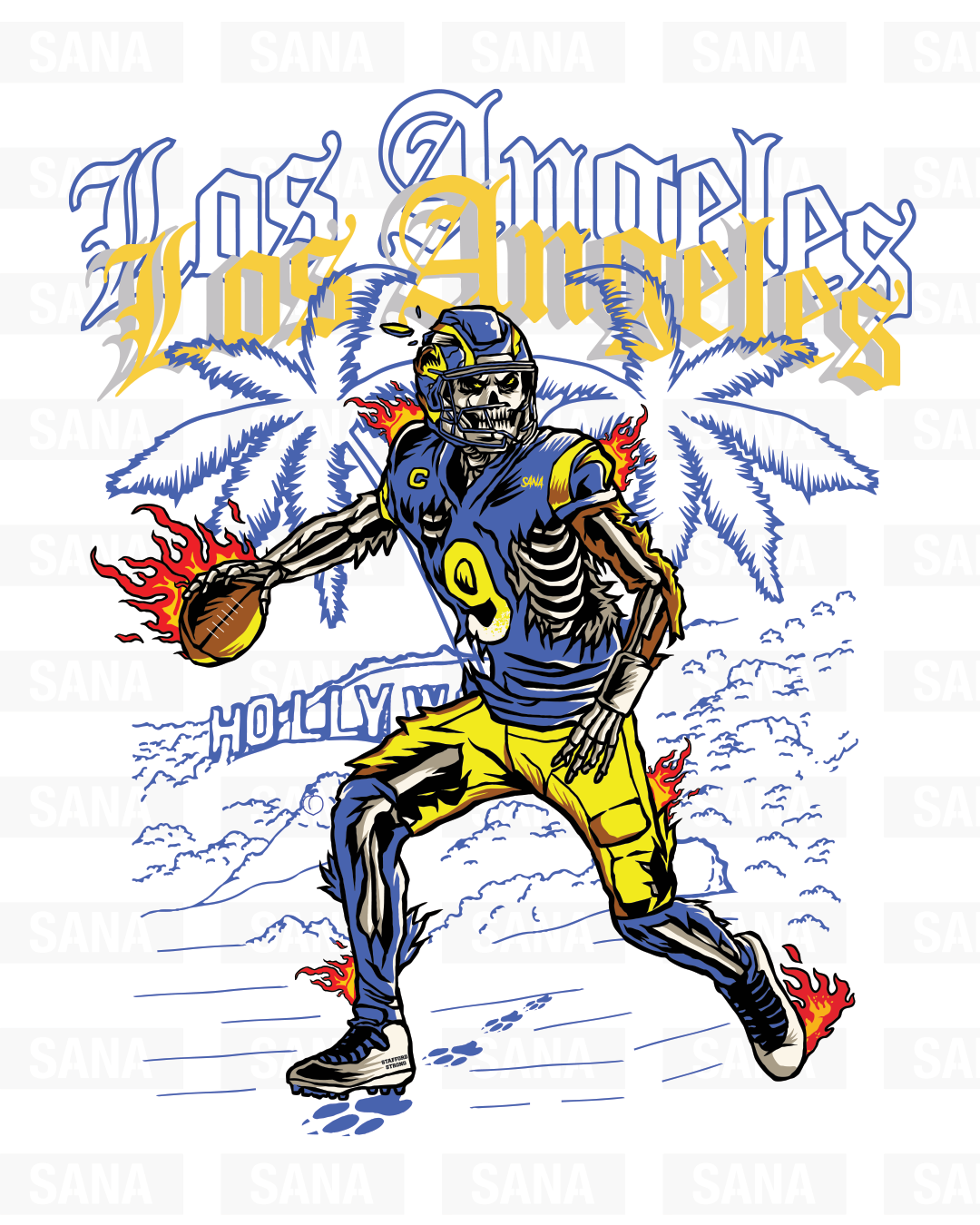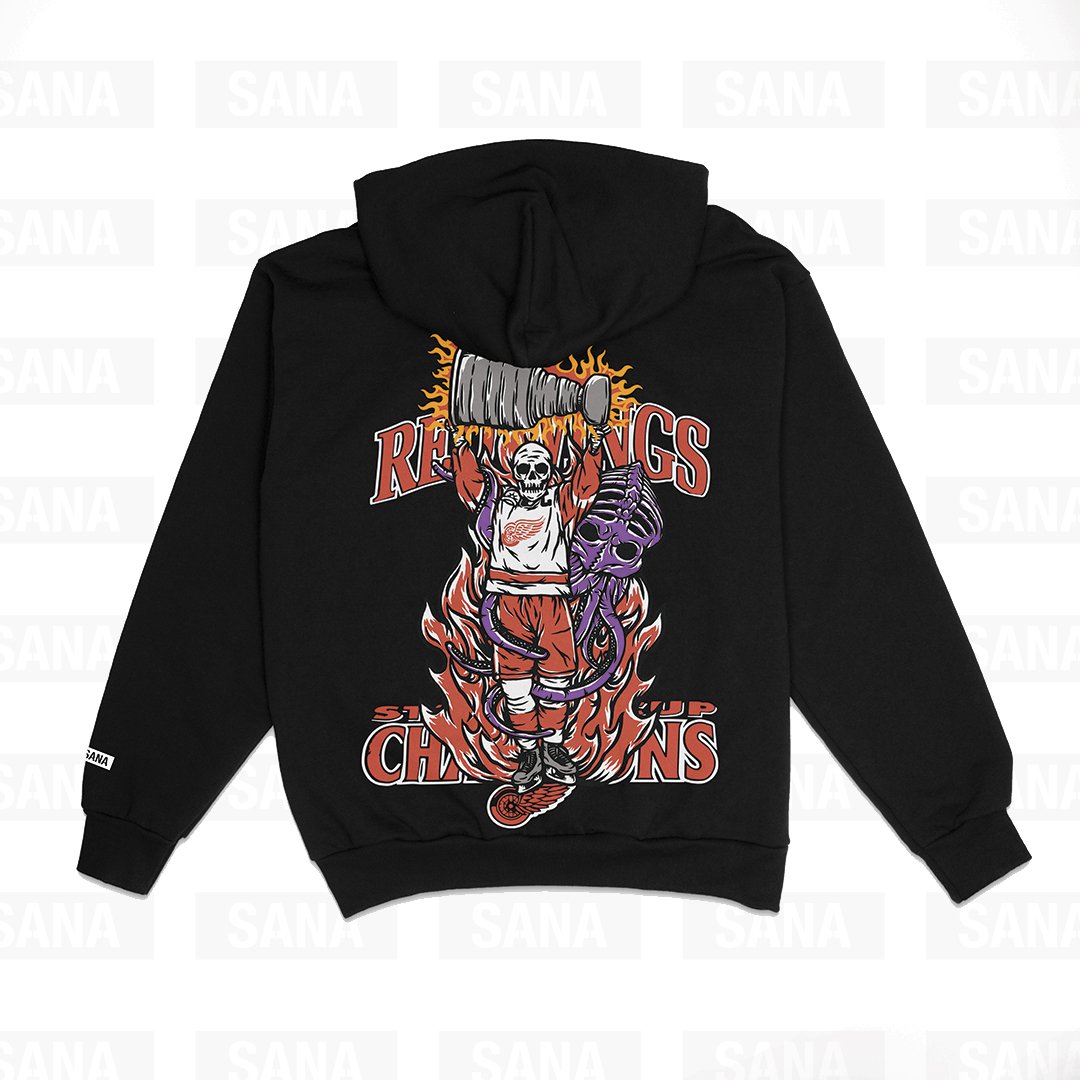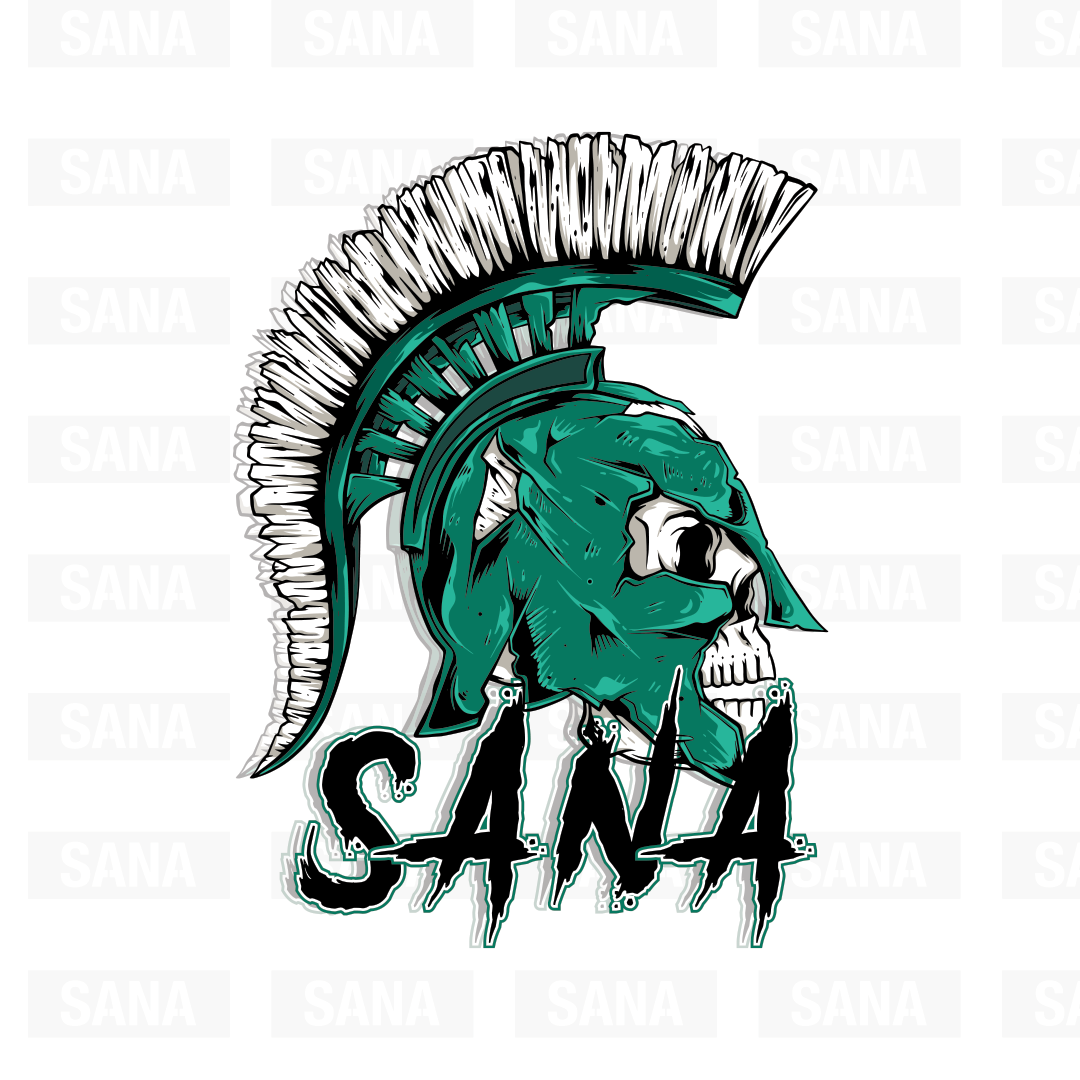Sana Detroit Breaks into the Fashion Industry
Cade Cunningham, a rising star on the Detroit Pistons, wearing his Sana Detroit t-shirt.
By Cal Abbo
When Michael Sana started his first clothing brand, Prime, it only sold five T-shirts. His newest line, Sana Detroit, has sold thousands of units in just over a year of existence.
The new Detroit-based streetwear brand emphasizes sports above all. Detroit’s classic pro teams – the Red Wings, Lions, Tigers, and Pistons – are reimagined in bursts of bones and fire by Michael Sana himself. Other designs are inspired by University of Michigan and Michigan State University.
Sana’s business model grows out of a lasting casual fashion movement called streetwear, which began with the hip-hop community in the early ’80s. Its look also draws from west coast surf culture, Japanese street fashion, and skating culture.
In recent years, top streetwear brands have established themselves as fashion powerhouses, minting partnerships with large sportwear companies like Nike and high-end luxury fashion houses like Gucci. The most sought-after streetwear brands include names like Supreme, Stussy, Bape, and shoe lines like Yeezy.
The classic streetwear business model is somewhat different from most of the fashion industry. Brands gain value based on three main factors: exceptional quality, extreme exclusivity, and an enormous amount of hype.
Matt Stafford L.A. Rams design
To build awareness and brand hype, streetwear companies heavily promote an exclusive, limited item and “drop” it at a certain time, usually on their website. If a drop is successful, hundreds of thousands of customers will visit the website within a few hours just for a chance to buy the item.
The key is to release a small amount of supply relative to your demand at a significant price compared to the normal market. Massive brands can sell out a few thousand items in under a minute, leaving many customers wanting or paying more than retail in second-hand markets.
Due to the item’s exclusivity, the post-market resale price rises even further than the retail value. As a result, savvy customers have made a living off buying several items from drops and reselling them. Some of Supreme’s items sell for thousands of dollars. Its most expensive items include a $23,000 T-shirt, a $25,000 basketball, a $30,000 chair, and a $35,000 backpack.
Sana Detroit hasn’t reached this level yet, but after only a year, the brand is quickly becoming Detroit’s go-to outlet for high-quality streetwear. Sana’s most recent drops have around 1,500 items each and sell out in about one hour with the vast majority of sales coming in the first 10 minutes. He would add more, he said, but first needs to better organize his business for high-volume product fulfillment.
“Our current shipping time is 3-4 weeks,” Sana said, explaining that he’s finally moved to a new warehouse. “With this new place, our shipping time will be 7-10 days. We didn’t want to expand prematurely and kill our business with even longer shipping times.”
Sana mentioned that many friends and family have suggested that, seeing his massive success, he transitions to a full-time online store with all the previous designs available for purchase. “I know for a fact, with the right marketing, this would just explode,” he said. “But the biggest reason for our success is the community, and you can’t build that just by selling tees year-round. You feel special that you’ve got something no one else can have, and that lasts a lot longer than a short-term squeeze.”
In December 2021, Sana Detroit rented out a space at Somerset Mall in Troy for one month only. Sana called it a popup store. On the first two Saturdays, they dropped a collection of old designs and people came to buy. The last Saturday, they dropped new designs. Sana said he saw 160 people waiting in line outside the store that day.
Detroit Red Wings hoodie design
This is not Sana’s first business success. He started his first job as a photographer when he was a freshman in high school. Eventually, he began creating videos for rappers and some commercial shoots. In fact, he made videos for big names like Smokepurpp and Lil Skies.
From there, Sana made his way into the world of social media and branding. He managed Instagram and Twitter accounts for businesses, grew them, and sold ad spots. Soon after, he got into the shoe game and other areas of fashion. “When it comes to fashion culture, my sister was a huge inspiration to me,” he said.
Sana’s parents are from Iraq and grew up in the village of Tel Keppe. As a teenager, his dad came to the United States and worked in a party store for some family. “My dad ended up doing things a little differently,” Sana said.
His family founded and still owns Soccer World, a successful soccer retail store with locations in Brighton, Canton, and Rochester Hills. The website claims they carry the largest selection of soccer equipment in Michigan.
“I was always around printing and jerseys and cutting machines where I could just design anything on a limb,” Sana said. “I would order my own stuff and make my own tees.”
Michigan State University design
In January 2021, Sana told his Instagram followers that he would start selling clothes. “The response from friends and family was amazing,” he said. The first drop, which featured a design of Red Wings legend Steve Yzerman, sold 30 hoodies.
“I was inspired by Detroit culture and I really wanted to make something cool for the Red Wings. There was never anything cool for Detroit sports fans to wear,” he said. “It was always tacky stuff.”
Sana has a specific dream for his brand: he wants it to be Detroit’s home-grown essentials streetwear brand. “I want everyone from Detroit to rep this in other cities,” he said. “The idea has always been to for people to be influenced by Detroit’s culture.”




